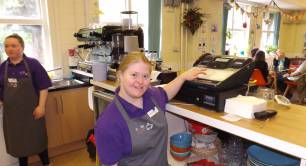Will South Africa’s first social impact bond get over the line?
At one of the many discussions at the Skoll World Forum, the team behind South Africa’s first social impact bond (SIB) were keen to share their experiences.
mothers2mothers (m2m) is an organisation that works to eliminate paediatric AIDS. About 400 babies contract HIV from their mothers every day in Africa. m2m trains mothers infected with the virus to be frontline healthcare workers to educate other mothers-to-be about preventive measures. It aims to ensure mothers and their families avail themselves of HIV testing and treatment, and other maternal and child health services.
Although as many as 40% of infants born to HIV-positive mothers will contract the virus without treatment, that can be reduced to 2% with treatment.
m2m has partnered with D.Capital as the producer (or intermediary) of the Western Cape Province Early Childhood Development Impact Bond Impact Fund, although m2m won't be making the intervention itself.
The organisation has found the investors, identified the social ventures that can do the work and are carrying on the work of the Bertha Centre for Social Innovation and Entrepreneurship at the University of Cape Town.
Bertha had undertaken three years of negotiation with the Western Cape Provincial government to reach an agreement to proceed. Bids for the implementation work have been submitted, and it is hoped that a decision should come within the next month
mothers2mothers’ intermediary partner D.Capital is an impact investment advisory firm that is part of Dalberg, a strategic advisory firm dedicated to global development.
At the Skoll discussion, senior advisor to the president and ceo of m2m David Torres was keen to stress that getting to this point had been very difficult. “It’s a lot of work, it’s a huge amount of effort and it’s extremely complex,” he said.
A three-year process
Pioneers Post first published an article about this SIB about a year ago, written by Susan De Witt of the Bertha centre.
m2m proposed to take on the intermediary role for the social impact bond fund together with Dalberg to do the work to structure the transaction, identify a group of investors and select implementing organisations through a thorough due diligence process.
These parties to the bids that have been submitted have to remain nameless for the time being while we wait to see if Western Cape provincial government will light the touch-paper on the project.
Torres feels that one of the advantages of this SIB was that the government will only pay for successful programmatic outcomes, not simply for quantitive fulfilment, such as the numbers of children served.
One of the additional motivations for the government to proceed to this point was the work m2m will do to build systems capacity within the implementing organizations to record routine program data and evaluate the effectiveness of their early childhood development programme work.
In other words, if the social impact bond goes ahead, the government will get a sense of the real cost per child of successful early childhood development programming.
Advice on producing a social impact bond
At the Skoll discussion, Torres offered advice to others thinking of working on their own SIB. He said: “It's extremely important if you’re piloting this financial mechanism that you keep it as simple as possible.
“Keep it as simple as possible in terms of outcomes, because the investors have to get their heads around it and they’re not necessarily social operators or experts in early childhood development."
Responding to a question, Torres also admitted that organisations contemplating producing a social impact bond also have to be a certain size and organisational capacity.
That was confirmed by m2m president and CEO Frank Beadle de Palomo when asked about the size of the organisation. “We have 80 employees, a finance team, a monitoring and evaluations team, and a contracts department that can do due diligence.”
Two government departments will make the decision on the social impact bond: the Department of Health and the Department of Social Development. According to de Palomo, one is already on board. The deal is worth 48m South African rand, (£2.8m).
Given the work it has already done to get this far, de Palomo says that m2m will probably break even if the SIB goes ahead, outcomes are achieved and payments are triggered. But more importantly, its experience in creating and fulfilling a social impact bond will put m2m in the position of having a service it can provide – another revenue stream.
Or as de Palomo eloquently phrases it: "This becomes an integral part of the organisation’s approach to how we do both implementation and services."
Photo credit: David East
Click here to read more about Skoll World Forum events, past and present.



